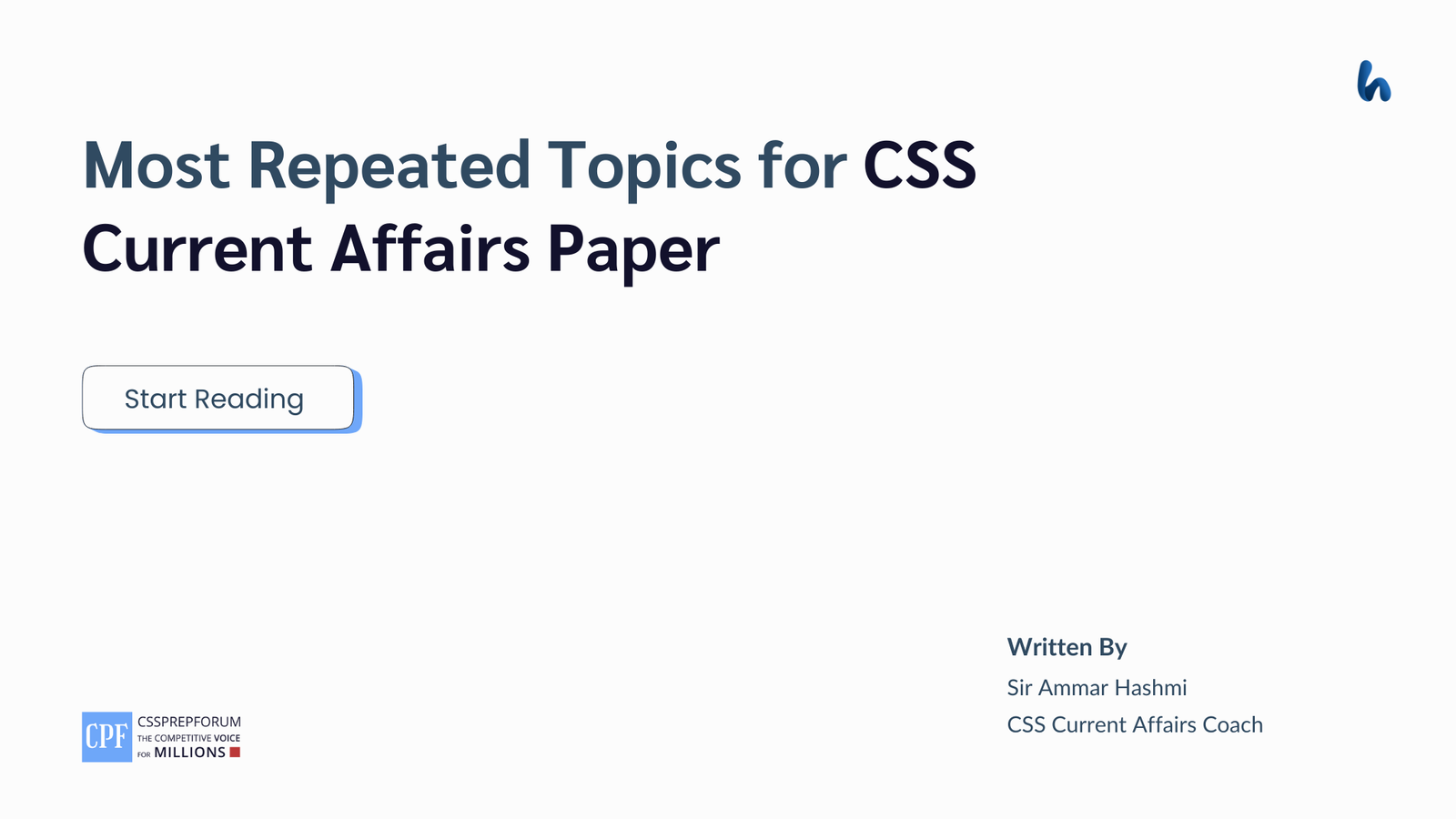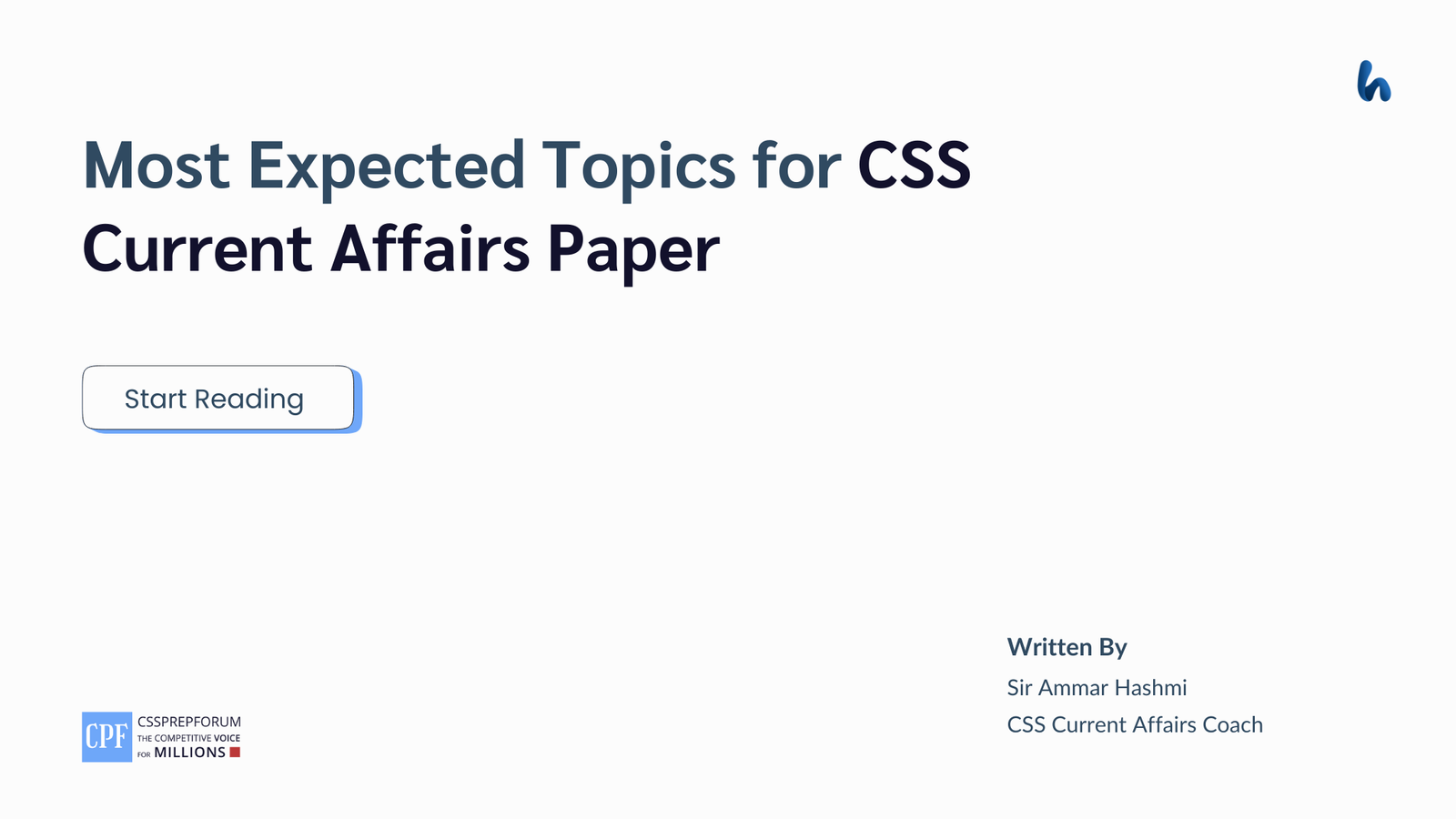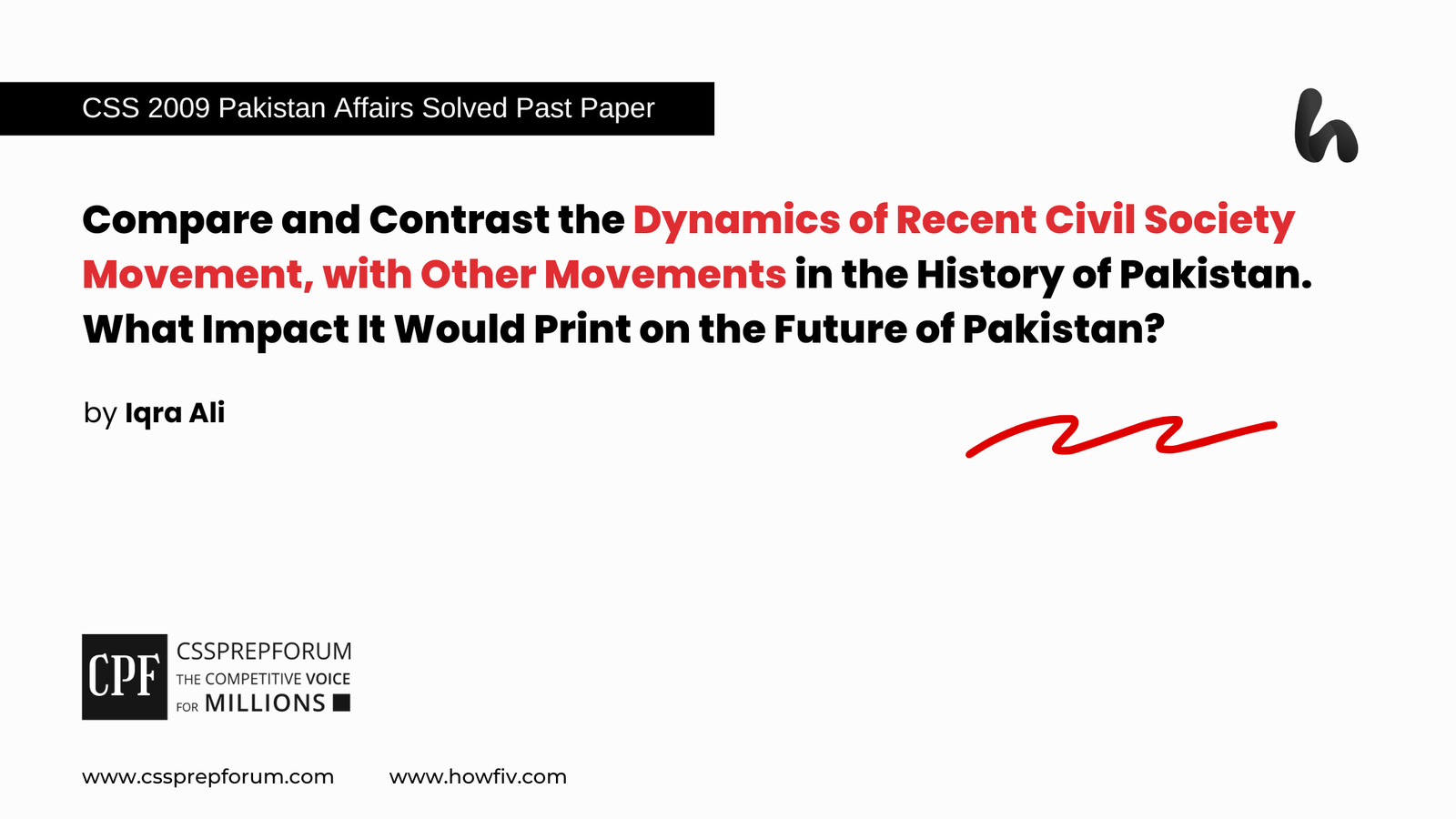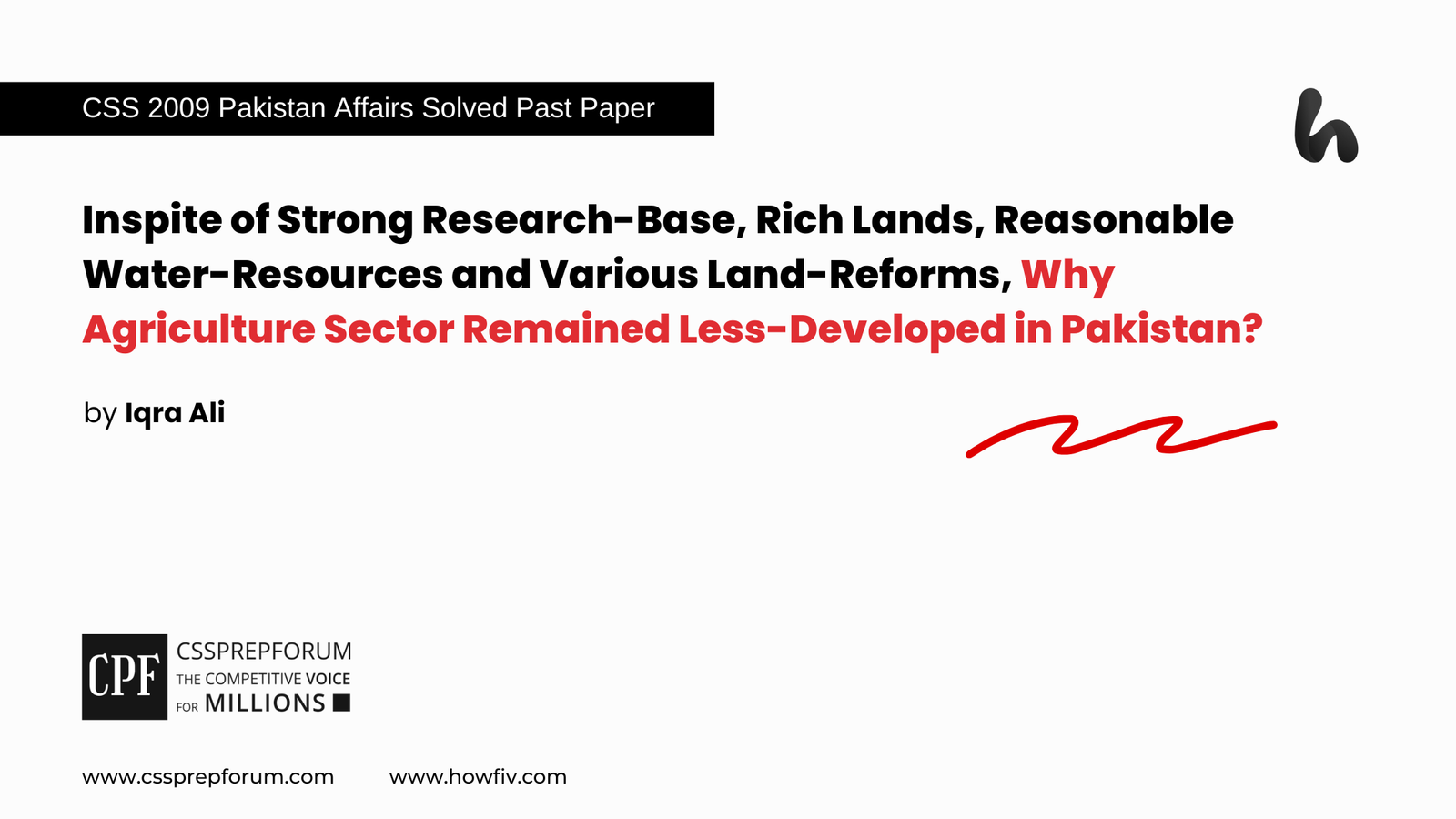The following article is written by Quiraat Khan, a student of Sir Syed Kazim Ali. Moreover, the article is written on the same pattern, taught by Sir to his students, scoring the highest marks in compulsory subjects for years. Sir Kazim has uploaded his students’ solved past paper questions so other thousands of aspirants can understand how to crack a topic or question, how to write relevantly, what coherence is, and how to include and connect ideas, opinions, and suggestions to score the maximum.

Introduction
Human development is a recipe for economic sustainability that a country searches for in the superficial economic growth variables. It solves the underlying structural problems overlooked by other economic variables. By doing so, it sets the course for the sustainable economic development of a country. Developed countries recognizing its significance, considerably invest in human developmental factors of health, education, infrastructure, employment generation, and women empowerment. On the one hand, education ensures a competent workforce and connects people to related employment opportunities. However, on the other hand, tapping the potential of women generates economic benefits. Additionally, adequate availability of infrastructure facilitates the provision of resources for human development and creates a conducive environment for foreign investment. Contrarily, developing countries mostly fail to make sufficient investments in this significant aspect of society and remain devolved in unsustainable economic growth, often destabilizing their economy. Therefore, human development is indispensable for economic sustainability, as aptly argued by chief economist Mahbub-ul-Haq: forces of demand and supply do not work if it’s fuel – the people have low purchasing power and disability to exercise their rights.
Understanding the relationship between human development and economic sustainability
The term human development means investing in factors that ensure the social well-being of the people. At the same time, economic sustainability means stable long-term growth of the economy, which can survive shocks and continue the growth trajectory. Speaking broadly, human development leads to the financial sustainability of a country by solving the underlying problems that most countries face. It constitutes an investment in education, health, infrastructure, employment generation, and gender parity. All these factors, directly or indirectly, provide solutions for the structural problems that hamper economic sustainability. For instance, some countries perform exceptionally well on economic growth charts but are fragile to external or internal shocks. An example is India: although it is one of the rising economies, it succumbed to the waves of Covid-19. On the other hand, Singapore is a country that focuses on creating a sustainable economy through human development and today stands as one of the most sought-after nations for investment and quality of life.
Investing in human developmental factors leads a country towards economic sustainability
Countries need to focus on the significance of sustainability for achieving economic growth in pursuing the set targets of economic growth. Unless a government adopts a sustainable financial plan, achieving growth will remain a distant dream. Therefore, a country should focus on improving the Human Development Index (HDI) elements, thereby improving the efficiency of a country’s economic wheel.
- Provision of quality education to maintain productivity in the country.
First, a country’s productivity level is a principal factor in deciding the stable output of its economy. This productivity is dependent upon the efficiency of the people who make up the workforce. Unfortunately, many countries face the crisis of having an illiterate population and an unskilled workforce, which does not match the labour requirements. Moreover, poor education quality limits people’s cognitive abilities and bars entrepreneurial and technological development.
Consequently, productivity levels decline, and persistent ignorance of this factor creates massive impediments for a country, which then lags to adopt the changing dynamics of the world. For example, Pakistan, with a learning poverty of 79 per cent, has a poor workforce leading to low productivity, harming the country’s stability. Therefore, empowering the workforce through quality education is an efficient fuel to maintain economic sustainability.
- Creating employment opportunities to eradicate poverty.
One of the most contentious challenges to economic sustainability is unemployment. Sometimes, even educated individuals cannot find jobs because of inadequate opportunities. Having no source of income devolves people into poverty. As a result, they become a burden on the economy. Moreover, some even resort to illegal or criminal activities disrupting the social fabric of the economy. Therefore, a country must create a conducive environment for investment that can help in employment generation. According to the United Nations Development Program (UNDP), “Creating productive employment opportunities is essential for the sustainable economic and social development.” Additionally, reducing poverty through the provision of employment is also one of the sustainable development goals. Thus, the creation of employment is a crucial human development factor that can lead to the road to economic sustainability.
- Ensuring a healthy population to improve living standards.
Further, investment in health has profound impacts on people’s living standards. Indeed, providing them services, such as hospitals, doctors, and medical advice, keeps the physical and mental health of the people intact, helping to remove many social ills from society. Moreover, it empowers people to actively participate in the economy and ensure a stable standard of living. A study, “How investing in health has a significant economic payoff for developing economies” by Brookings found that an economic return of between $2 to $4 across developing countries is expected for every $1 invested in health. It means developed countries focus on universal health programs; however, many developing nations, especially African countries, suffer from health drawbacks, deteriorating their standard of living. Hence, investment in this factor of human development also contributes to long-term economic sustainability.
- Utilizing the untapped potential of women to support the economy.
Adding more to it, gender-biased norms bar women from active participation in the economy. As a result, they become dependent on men and a liability to their country. A study by the Asia-Pacific Economic Cooperation (APEC) found that the cost of the untapped economic potential of including women in the digital economy was estimated at $94 billion for 2020 in the APEC region. Fortunately, the rise in feminism and active awareness is paving the way for women’s empowerment, thus, equipping women to become economically independent and ensuring their social security in distressed times. Thus, the significance of utilizing the potential of women was also highlighted in The Fourth World Conference on Women in 1985, where the need to empower women was emphasized as a critical factor for sustainable economic development.
- Building infrastructure supports business.
Lastly, infrastructural development constitutes building roads and ensuring the unhampered supply of amenities, like electricity and water. Not only do these developments facilitate other human development factors, but also, they help in creating a conducive environment to support business. Providing these facilities ensures the efficient workflow of the economic wheel. In a study by the Asian Development Bank (ADB), “Inclusive Growth and Inclusive Development: A Review and Synthesis of Asian Development Bank Literature”, it was found that in India, dynamic small and medium-sized enterprises (SMEs) contribute to inclusive growth through direct and indirect linkages of infrastructure.” Moreover, providing these facilities promotes a country’s image in the global economic environment, making it a conducive place for foreign investment, which also helps in generating employment opportunities. Therefore, building infrastructure also leads to financial sustainability.
Critical Analysis
Most countries are busy chasing economic growth targets while the standard of living for their population still needs to improve. An example of this is India. Although the country is regarded as an emerging economy, its standard of living is so poor that it had to build walls to hide its poverty when an American President visited the state. This shows why economic growth does not represent a stable picture of the economy. Therefore, economists continuously debate and advise it to move toward sustainable development. Sustainable development can be achieved by investing in humans. Furthermore, more than the mere provision of developmental resources is needed. It is also essential to keep a regress check on the proper utilization of the resources through persistent evaluation. For example, many states provide free education and health facilities; however, these facilities are awful because of a lack of scrutiny. Therefore, to ensure that human development promotes economic sustainability, a regress mechanism should be developed to ensure the time delivery of resources.
Conclusion
Sustainable economic development is impeded by structural problems of illiteracy, lack of employment, lack of inclusivity, and poor living standards. To address these issues, investment in human development is vital. Therefore, countries should devise proper policies and sufficiently invest in human development instead of chasing economic growth. The outcomes of investment in these factors are not immediate; however, they are profound. Slow, steady, and stable development represents actual financial sustainably that can be effectively integrated through human action. When people are educated, healthy, and employed in an equitable environment, their standard of living and purchasing power parity improves. Additionally, they become responsible citizens who enthusiastically work for their country’s economy, ensuring sustainable development. The significance of human development for a sustainable economy was stressed in the following words by pioneering economist Amartya Sen,
“Economic growth without investment in human development is unsustainable and unethical.”
CSS Solved Past Papers’ Essays
Looking for the last ten years of CSS and PMS Solved Essays and want to know how Sir Kazim’s students write and score the highest marks in the essays’ papers? Then, click on the CSS Solved Essays to start reading them.
CSS Solved Essays
PMS Solved Past Papers’ Essays
Looking for the last years’ solved PMS essays and want to know how Sir Kazim’s students write and score the highest marks in the essays’ papers? Then, click on the PMS Solved Essays to start reading them.
PMS Solved Essays

CSS Solved General Science & Ability Past Papers
Want to read the last ten years’ General Science & Ability Solved Past Papers to learn how to attempt them and to score high? Let’s click on the link below to read them all freely. All past papers have been solved by Miss Iqra Ali & Dr Nishat Baloch, Pakistan’s top CSS GSA coach having the highest score of their students.
General Science & Ability Solved Past Papers
Articles Might Interest You!
The following are some of the most important articles for CSS and PMS aspirants. Click on any to start reading.












